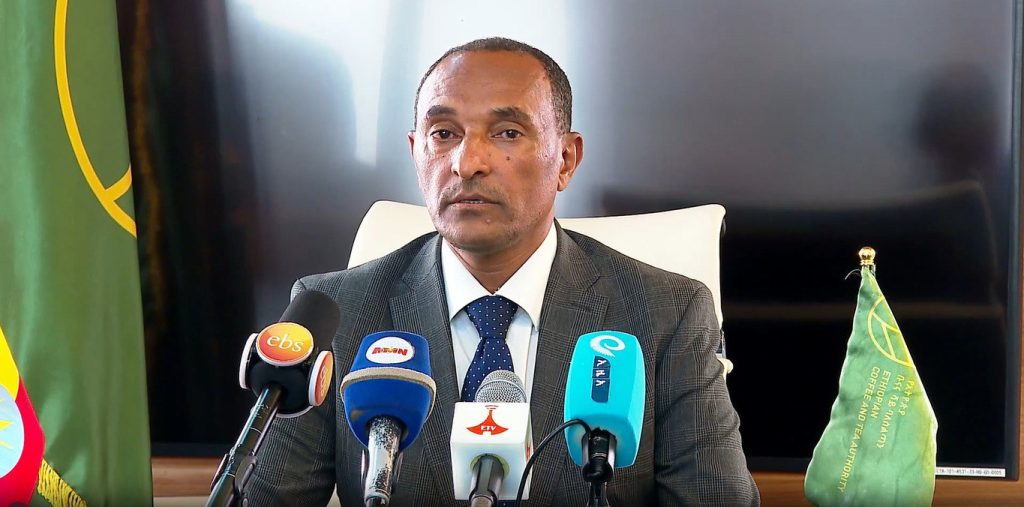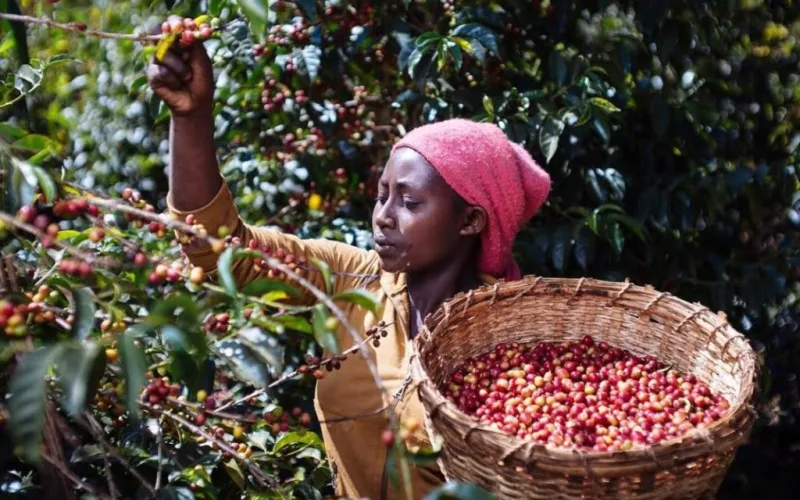Ethiopian coffee Export trade was disrupted for three days due to an attack by Houthi militants on the Red Sea.
The Ethiopian Coffee and Tea Authority has issued a statement regarding the performance of the coffee export trade for the 2023/24 fiscal year.
According to the Director General of the Coffee and Tea Authority, Adugna Debala, Ethiopia had planned to earn $1.7 billion by exporting 350,000 tons of coffee in the current fiscal year.
However, the actual performance fell short, with the country earning $1.4 billion by exporting 298,000 tons of coffee to foreign markets.
Debala noted that the coffee exports to European countries were particularly affected by the disruptions in the Red Sea, attributed to attacks by Houthi militants.
Specifically, the coffee trade was halted for three days due to these attacks on ships transporting Ethiopian coffee to Europe via MSC shipping lines.
The Director General warned that Houthi militants might continue to pose a threat to the coffee trade, leading to potential additional costs for traders.
These costs could arise from prolonged storage of coffee at ports and the need to ship coffee by air cargo, which is more expensive.
In the 2023/24 fiscal year, Ethiopia exported coffee to 65 countries worldwide. Notably, 21 percent of the total coffee exports were sent to Saudi Arabia.
Other major destinations for Ethiopian coffee included the United States, Germany, Belgium, China, Japan, and the United Arab Emirates.

The director also highlighted Ethiopia’s ambitions to curb illegal coffee trading, enhance product quality, and improve coffee varieties to boost income from coffee exports.
Since 2021, the country has removed and replaced 100,000 hectares of old coffee trees to improve production and productivity.
Four months ago, the European Union imposed a ban on importing products that disrupt environmental protection, particularly forest products, into member states.
Ethiopia’s coffee production would be impacted by this ban, as the country has committed to not trading forests for coffee production.
The Ethiopian Coffee and Tea Authority has clarified that the amount of forest land used for coffee production in Ethiopia is only 2 hectares.
Additionally, Ethiopia is working to provide coffee production without deforestation to the global market.
In response to the European Union’s decision not to accept coffee produced in mangrove forests, Ethiopia is adjusting its coffee production practices.
With 30 to 35 percent of Ethiopia’s coffee production entering the European market, efforts are being made to maintain this market opportunity.
According to Adugna Debala, Ethiopia’s coffee exports to the European market generate $500 million annually.
